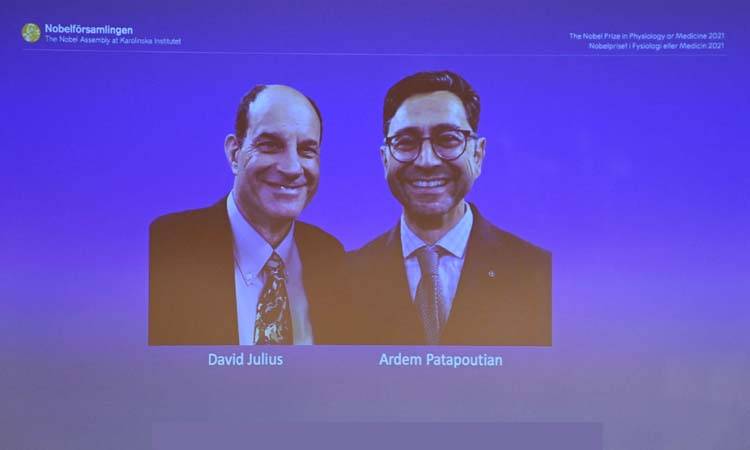
STOCKHOLM: The US molecular biologists have recently won the 2021 Nobel Prize in Medicine for their findings of touch and temperature receptors.
The Nobel Committee has declared Prof. David Julius of the University of California, San Francisco, and Ardem Patapoutian of Scripps Research, California, the winners of this year's Nobel Prize in Physiology.
They received the accolade for describing the mechanics of how humans perceive hot, cold, touch and pressure through nerve impulses.
David Julius settled for capsaicin, a chemical found in chilli peppers, as a basis for his research. He used this chemical irritant's burning sensation to distinguish a sensor in the skin's nerve endings that responds to heat. In this way, he discovered TRPV1, an ion channel that has been activated by painful heat.
Whereas, Patapoutian's work led to the discovery of skin and internal organ sensors that respond to mechanical inducements like touch and pressure.
Along with his colleagues, he poked cells with a micropipette to observe how the genes within the cell reacted. After that, they switched 72 individual genes that could be encoding receptors and switched them off one by one to discover the one responsible for mechanosensitivity. In this way, he led to the discovery of Piezo1 and Piezo2.
Thomas Perlmann, a member of the Nobel committee, said that Julius and Patapoutian had enlightened one of the secrets of nature, and that was how we sense touch, depth, reach out for things and experience pain. The discoveries have been significant to understand core body temperature, protective reflexes, inflammatory pain, respiration, urination, and blood pressure.
Although this year, he said, many had expected that prize might go to one of the makers of the COVID-19 vaccine, which was deemed the most critical discovery in Physiology or Medicine in 2021.
However, according to the committee, that was the basic research, which would benefit future drug development.


